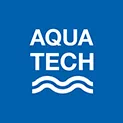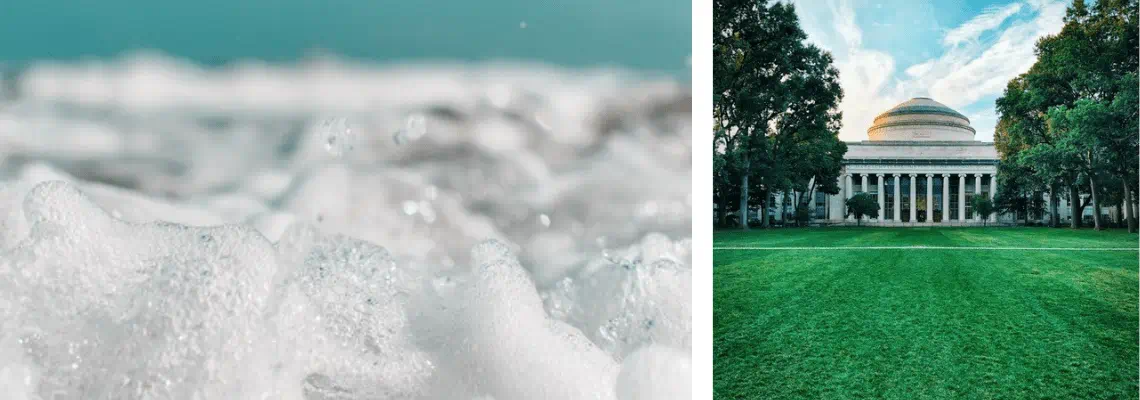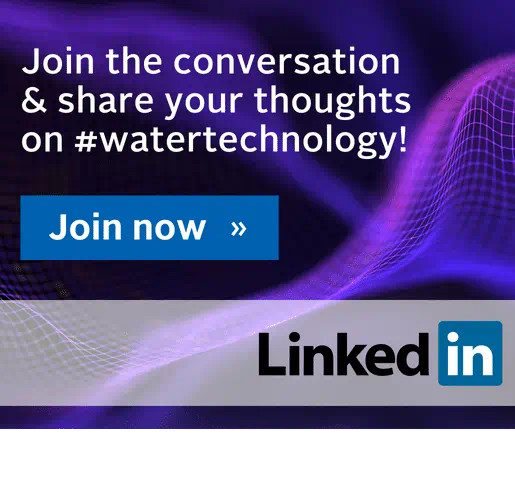A new soap-based technology developed by engineers at MIT can remove micropollutants from water. Aquatech Online looks at this unusual method with great potential.
Soapy sponge
Three engineers from the Massachusetts Institute of Technology (MIT) have turned to soap as an unusual method of removing micropollutants from water.
Results from the micropollutant removal project, funded by MIT’s Abdul Latif Jameel Water and Food Systems Lab (J-WAFS), have been published in the journal ACS Applied Polymer Materials.
So why soap?
Soap molecules, otherwise known as surfactants, have both hydrophobic and hydrophilic components.
When water comes in contact with soap, the hydrophobic parts of the surfactant stick together, assembling into spherical structures called micelles with the hydrophobic portions of the molecules in the interior.
In the process, this helps to trap and help carry away oily substances like dirt. Using microfluidics the team were able to generate uniform polymeric hydrogel particles continuously to essentially cleanse the water.
These hydrogels, which are both porous and absorbent, incorporate a surfactant, which assembles into micelles that are chemically bonded to the hydrogel using ultraviolet light.
“Soap has molecules called surfactants which have both hydrophobic (water-hating) and hydrophilic (water-loving) components.”
When water flows through this micro-particle system, micropollutants latch onto the micelles and separate from the water.
The physical interaction used in the system is strong enough to pull micropollutants from water, but weak enough that the hydrogel particles can be separated from the micropollutants, restabilised, and reused.
Lab tests also showed that the speed and extent of pollutant removal improved when the amount of surfactant incorporated into the hydrogels was increased.
Micro in size; massive challenge
Micropollutants, or contaminants of emerging concern, are fast becoming a major issue in the water sector with increased research being carried out.
Common methods for micropollutant removal from water include using activated carbon adsorption, as well as reverse osmosis. However, the researchers claim current methods don’t go far enough.
"RO doesn't lead to good elimination of this class of molecules, because of both their concentration and their molecular structure.”
"RO doesn't lead to good elimination of this class of molecules, because of both their concentration and their molecular structure,” said Doyle.
With traditional methods being perceived as not up to standard to deal with the massive micro issue, it has led to the sector creating unusual methods.
Treating the usual with the unusual
While soapy sponges are the latest unusual technology being used to clean water, it is not the most unusual technology in this space.
German non-profit start-up Water 3.0 recently developed 'plastic popcorn', a hybrid silica gel that use a physicochemical process to bind microplastic particles to their surface.
Forming fluffy agglomerates that look like popcorn, the hybrid silica gel acts as an adhesive on the plastic particles.
Furthermore, Dr Dhany Arifianto from the Institut Teknologi Sepuluh Nopember in Surabaya, Indonesia, turned to sound to tackle micropollutants and created a prototype that uses acoustic waves to remove microplastics.
The solution works by placing two speakers that create acoustic waves towards a contaminated water stream. This creates a force that can separate the microplastics from the water by creating pressure on the tube of inflowing water.
Meanwhile, in a UK marina located at the Plymouth Marine Laboratory, a group of mussels are hard at work removing micropollutants.
Working as a water filter, mussels can suck bacteria, algae, and other items from their surroundings, including microplastics, out of the water and into their gills.
Related content
- Acoustic waves + 3 other novel solutions to remove microplastics
- Microplastics in drinking water “not a risk”, says who
- Microplastics remain area of emerging concern







